Do You Need to Do Estate Planning?
Written By Tiffany Woodfield, Financial Coach, TEP®, CRPC®, CIM®
As a Trust and Estate Practitioner (TEP), my experience has shown me just how important it is to plan for a time when you won’t be here.
Although we all understand that death is a part of life, preparing for it is still a challenging task.
Until recently, I hadn’t realized how many individuals lack a will, let alone an estate plan.
But here’s the thing: we can’t escape two realities: death and taxes.
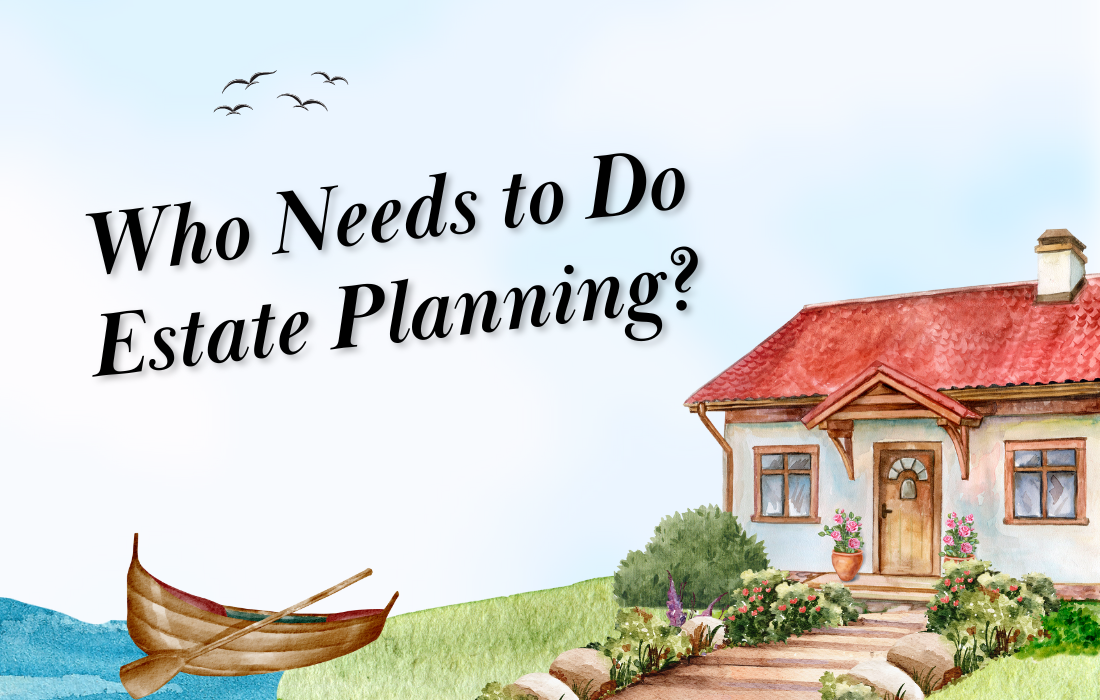
Thankfully, by having an estate plan in place, you can prepare for your death and lessen your tax burden. This seems obvious, doesn’t it? So, why do so many people postpone creating their wills and estate plans?
I think there are two main reasons: first, the discomfort of thinking about death, and second, the lack of constant prompting to address it.
With all the messages telling us to “live for today” and “be present,” planning for our future can feel counterintuitive. In our always-connected lives, filled with texts, emails, and social media, it’s easy to feel overwhelmed, making the important issues seem less urgent.
In short, if you’re wondering whether or not you need to do estate planning, the answer is: YES. If you have any amount of assets, you need to do estate planning.
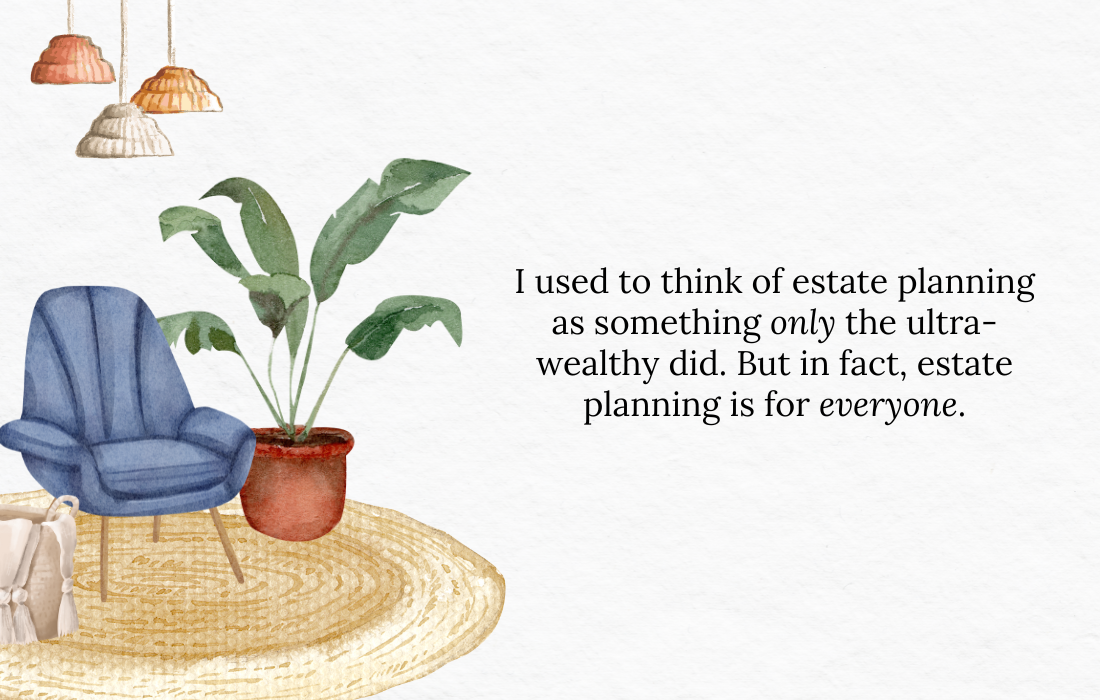
How I Used to Think about Estate Planning
I used to think of estate planning as something only the ultra-wealthy did.
The word “estate” conjures images of vast lands and grand castles rather than the assets and property of the average person. This makes me wonder if many others share this perspective, which might explain why they undervalue the importance of estate planning.
Yes, it’s true that thinking about our eventual death can be uncomfortable and that the term “estate planning” sounds intimidating.
It isn’t something we encounter in our daily lives. Nobody says to their friends, “Do you have an estate plan?” while having a chat over brunch. So, it remains a foreign topic. But I wish it were more mainstream because the benefits of estate planning are significant.
Who Benefits from Estate Planning?
The more wealth you accumulate, the more complexities you’ll find when you do your estate planning.
But it’s also true that everyone who has assets benefits from estate planning. It can be anything from a simple will or Power of Attorney to complex estate planning with trusts and insurance. You need to consider what would happen if you were to pass away or become incapacitated, even temporarily.
Estate planning isn’t about whether you have significant assets or others who depend on you, such as a spouse, kids or pets. What about your online presence and personal property items that are valuable to you?
Remember that your spouse taking over for you isn’t automatic. And if you don’t do any estate planning, your kids won’t just automatically inherit everything.
Not to be scary, but if you don’t do basic estate planning, it will be a mess for your family members. And it will cost your family more in the long run.
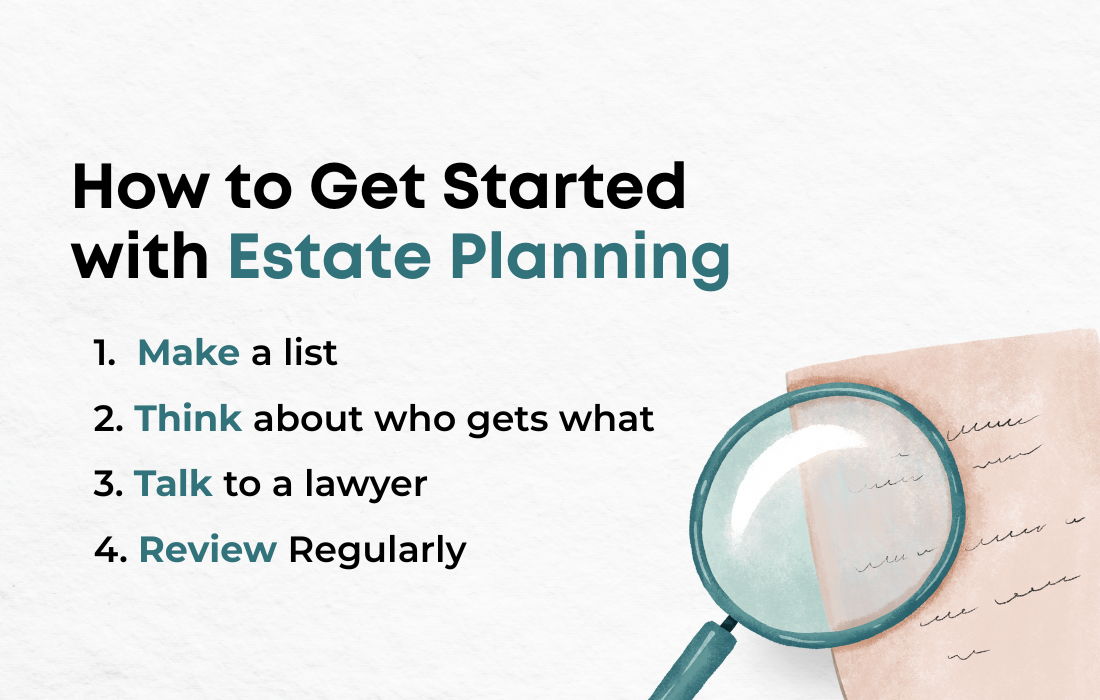
How to Get Started with Estate Planning
Here are some simple tips on getting started if you’ve never done it before:
1. Make a list: Start by writing down all your important assets. This will give you a clear idea of what you want to plan for.
2. Think about who gets what: Decide who you want to give your things to when the time comes.
3. Talk to a lawyer: They can help you understand how to protect your family, create legal documents, and ensure your wishes are followed.
4. Review Regularly: As your life changes, review your estate plan every few years to ensure it still reflects your wishes.
What Exactly Is Estate Planning?
Estate planning is simply the process of preparing for what happens to your belongings, money, and responsibilities after you pass away.
It doesn’t need to be a daunting task. It’s about taking control of your future and protecting your loved ones.
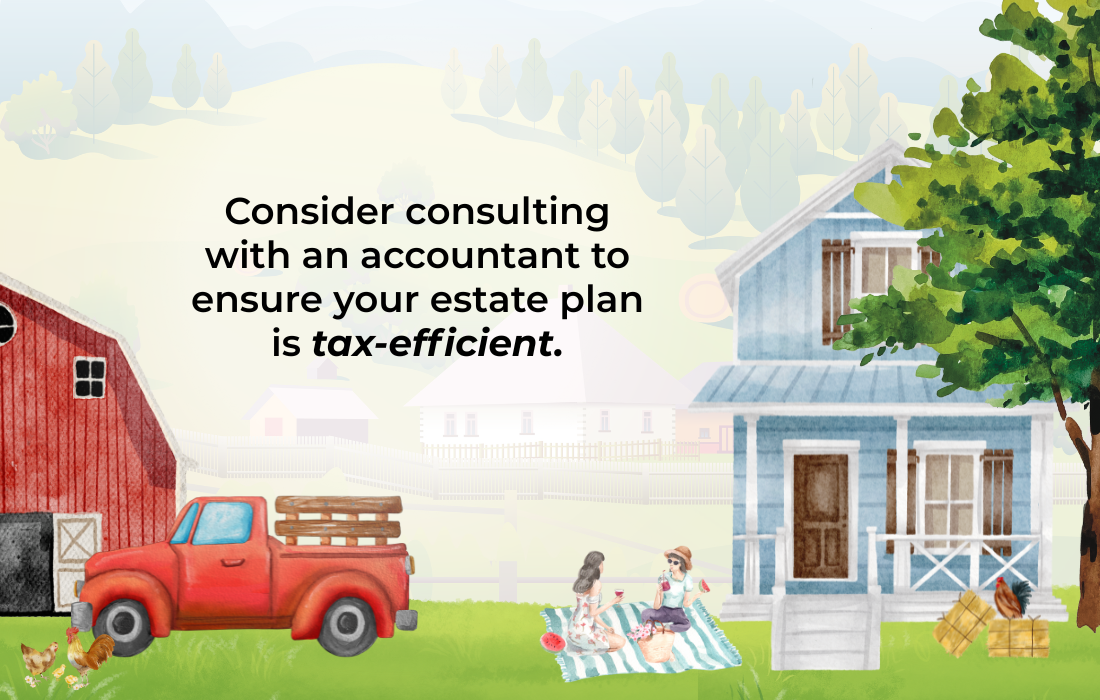
Who Should You Work with to Do Your Estate Planning?
In Canada and the US, it is best to work with an estate planning attorney who knows the laws in your province or state, as they can help create essential documents such as wills and trusts.
Consider consulting with an accountant to ensure your estate plan is tax-efficient. In many cases, you’ll be in regular contact with your wealth management team, and they understand you and your financial situation. They can be a great resource to recommend referrals to other professionals, such as lawyers and accountants.
📖Related Read: What Is Estate Planning in Canada
The Role of Insurance in Estate Planning
Insurance plays a key role in estate planning by providing financial protection, helping with business succession, and equalizing an estate.
Some insurance policies can be used to fund your estate, pay taxes, or support a trust, making it easier to manage your assets and wishes.
Common Questions about Estate Planning
Why is estate planning important?
Estate planning helps you decide what will happen to your belongings after you’re gone.
It can also help avoid arguments or confusion, making things easier for your loved ones during a tough time.
How can estate planning protect my family?
By doing estate planning, you show that you care because you’re making sure everything is organized.
Without a plan, it takes longer for your loved ones to sort everything out, making a tough time even harder for them.
When is the best time to start estate planning?
The best time to start estate planning is when you have valuable belongings or when you reach a certain age and want to make your own choices about what happens to them.
Certain life events make it even more crucial, such as getting married, getting divorced, buying a house, or starting a family.
What happens if I don’t do any estate planning?
If you don’t do any estate planning, the law will decide who gets your belongings, which might not be what you want.
This can lead to confusion and arguments among your family about who should get what.
How can estate planning help business owners?
Estate planning helps business owners ensure that their business continues even if something happens to them.
It allows them to decide who will take over and manage the business the way they intended.
Do I need estate planning if I don’t own much?
Yes, you still need estate planning even if you don’t own much!
Having a plan makes it easier for your family and friends to know what you want, so they don’t have to guess or argue about it later.
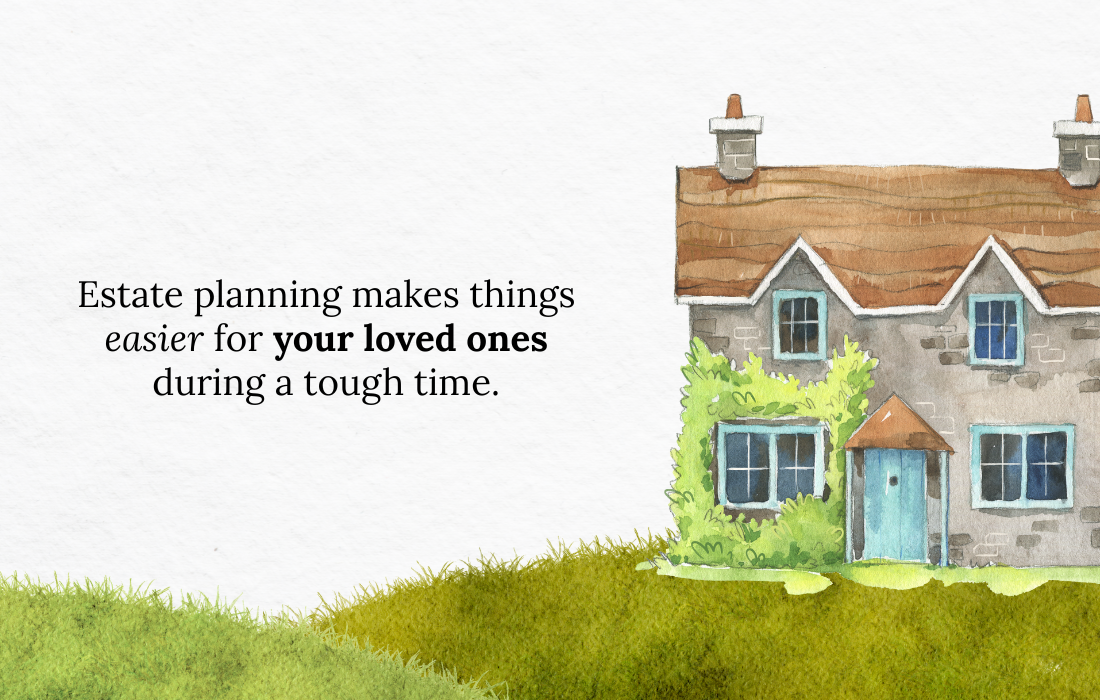
Get the Free Guide and Audio Meditation for Manifesting Your Dreams
Pop your email address in the form below to get my easy checklist and guide to manifesting and the guided audio meditation to help you get started.
You’ll also get one or two emails per month with the latest blog posts about abundance, wealth-building, manifesting, and creating a fulfilling life.
Read More:
💎 Simple Estate Planning Checklist for Canadians
💎 17 Will and Estate Planning Tips for Canadians
💎 At What Age Should I Consider Estate Planning?
About the Author
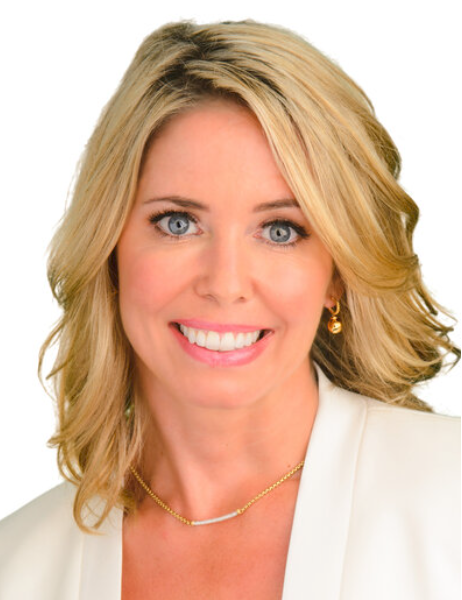
TIFFANY WOODFIELD is a financial coach, cross-border expert, and the co-founder of SWAN Wealth based out of Kelowna, BC. As a TEP and associate portfolio manager, Tiffany has extensive experience working with successful professionals who want to leave a legacy and enjoy an adventurous, work-optional lifestyle. Tiffany combines extensive knowledge from her background as a financial professional with coaching and her passion for personal development to help her clients create a unique path that allows them to live their fullest potential. Tiffany has been a regular contributor to Bloomberg TV and has been interviewed by national and international publications, including the Globe and Mail and Barron’s.